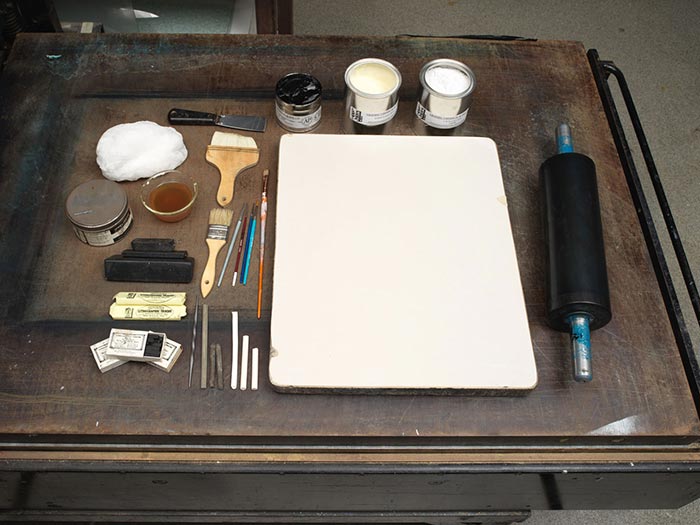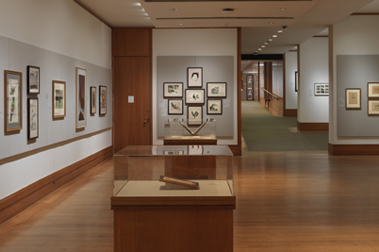Grand Football Match -- Darktown against Blackville: A Kick Off
Publisher Currier & Ives American
Not on view
The late nineteenth-century Darktown prints by Currier & Ives depict racist stereotypes that are offensive and disturbing. The Metropolitan Museum of Art preserves such works to shed light on their historical context and to enable the study and evaluation of racism.
This print depicts a circle of Black (African-American) men from two soccer (football) teams: three wear blue/white striped jersey shirts; three wear in red jersey shirts. The referee (shown from behind) has blue-checked pants with a big brown patch sewn on. He has just tossed the ball above the players' heads (upper center), so each one has poised a leg in the air trying to kick the ball. One player (at right) has kicked off his shoe in the attempt; while another player (at left) elbows the face of an opposing player. Goal posts are in right middleground, with two players near by; two more players are running/tumbling on the field in left background.
Nathaniel Currier, whose successful New York-based lithography firm began in 1835, produced thousands of hand-colored prints in various sizes that together create a vivid panorama of mid-to-late nineteenth century American life and its history. People eagerly acquired such lithographs featuring picturesque scenery, rural and city views, ships, railroads, portraits, hunting and fishing scenes, domestic life and numerous other subjects, as an inexpensive way to decorate their homes or business establishments. As the firm expanded, Nathaniel included his younger brother Charles in the business. In 1857, James Merritt Ives (the firm's accountant since 1852 and Charles's brother-in-law) was made a business partner; subsequently renamed Currier & Ives, the firm continued until 1907.

